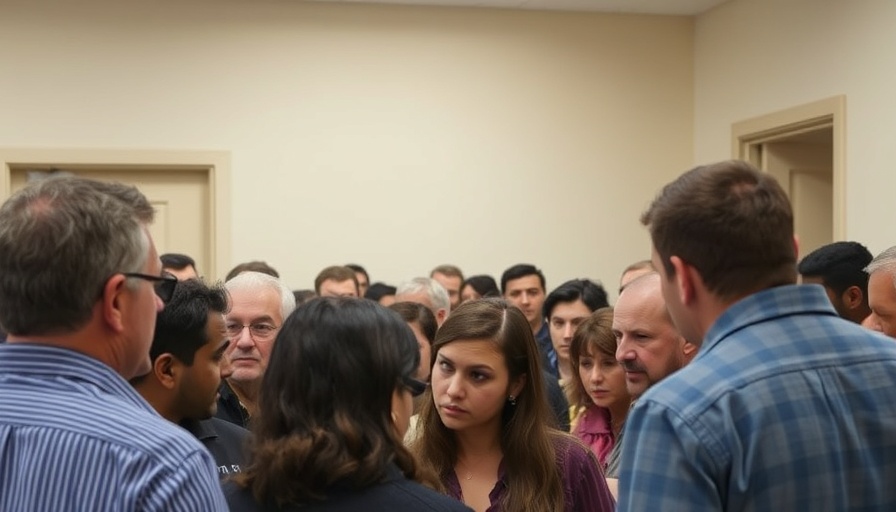
The Crime of Being Mexican in America
Senator Alex Padilla's recent experience at a press conference about immigration raids starkly highlights the ongoing prejudice faced by Mexican Americans in a country where their heritage can be misconstrued as a crime. In a shocking display of aggression towards a U.S. senator, federal agents removed Padilla from the event as he attempted to ask Homeland Security Secretary Kristi Noem a critical question regarding immigration policies impacting Californian communities. Instead of engaging in dialogue, he was tackled onto the ground—all because he was asserting his right to ask about policies directly affecting his constituents.
The Roots of Prejudice Against Mexican Heritage
This event exemplifies a troubling trend in America where those with Mexican heritage face skepticism and hostility. Padilla, like many others of Mexican descent, hasn't just faced barriers today; he stands as a representation of centuries of discrimination and systemic oppression that distorted perceptions of Mexicans in the U.S.—a narrative that began with hostile rhetoric from politicians, notably exemplified by Donald Trump in 2016. As history recalls, Trump’s campaign heralded an increase in xenophobic sentiments, framing immigrants as threats and reinforcing negative stereotypes that have festered across generations.
Echoes of Historical Discrimination
Historically, the mistreatment of people of Mexican descent has roots that run deep—from the Mexican-American War to segregation and the injustices faced in everyday living. The portrayal of Padilla as a modern-day Pancho Villa by some conservative factions reflects an enduring disdain and reinforce historical grievances. These images can stabilize racial stereotypes that undermine the contributions and humanity of many Mexican Americans whose family legacies predate the American state itself.
Confronting the Modern-Day Adversity
Padilla's forcible removal at the press conference is an intersection of historical grievance and present discrimination. The incident represents a microcosm of the challenges faced by people of Mexican and Latinx descent across the nation, revealing the ever-present battle against prejudice. His resilience emphasizes the importance of representation in leadership, and how critical it is for communities to have voices that advocate for their concerns on national platforms.
What Can We Do as a Community?
Living in Bakersfield, as members of a diverse community, we have the power to challenge these harmful narratives. Engaging in conversations about race and immigration, supporting local Latino-owned businesses, and amplifying voices within our community are just a few steps we can take. Education is also key: understanding the historical context and present implications of legislation and rhetoric surrounding immigration can empower us all to stand against discrimination.
Inspiration from the Community
Each day, individuals within our community rise above societal expectations and stereotypes. By sharing the stories of those who have faced similar challenges, we acknowledge the depth of resilience present in Mexican culture. This spirit can inspire younger generations to embrace their identity and stand firm against prejudice.
Alex Padilla’s story is more than an isolated incident; it is a call to action—a reminder that until equity and respect are universal, we cannot rest. Standing in solidarity and pushing against adversity is vital to creating a future where everyone can thrive without fear or prejudice based on their heritage.
 Add Row
Add Row  Add
Add 



Write A Comment